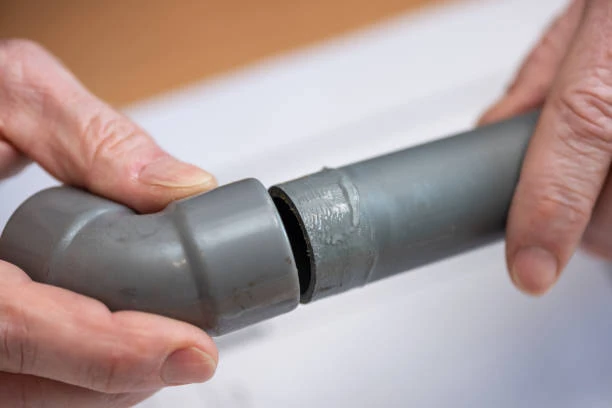India’s PVC pipes market is undergoing significant transformation, driven by innovation, increasing demand, and a growing focus on sustainability. This article delves into the current landscape, the PVC pipes market forecast, and future pathways for growth and innovation.
Overview of the PVC Pipes Market Forecast in India
What Are PVC Pipes?
Polyvinyl chloride (PVC) pipes are a popular choice in various applications, including plumbing, irrigation, and drainage. Known for their durability, lightweight properties, and resistance to corrosion, PVC pipes are integral to infrastructure development across India.
Current Market Landscape
The Indian PVC pipes market has experienced steady growth in recent years, fueled by rising construction activities, government initiatives, and urbanization. The market is projected to expand further due to an increasing emphasis on water management and sanitation.
Key Drivers of PVC Pipes Market Forecast Growth
1. Infrastructure Development
India’s push for infrastructure development plays a crucial role in the PVC pipes market. With the government investing in smart cities, road construction, and water supply projects, the demand for PVC pipes is expected to rise significantly.
2. Agricultural Demand
The agricultural sector is another critical driver. PVC pipes are widely used in irrigation systems, and with a growing focus on efficient water usage, their demand in agriculture continues to increase. Innovations in drip irrigation and sprinkler systems further enhance this trend.
3. Environmental Regulations
As environmental concerns rise, regulations promoting sustainable practices are shaping the PVC pipes market. Manufacturers are focusing on eco-friendly production methods and recyclable materials, which align with global sustainability goals.
PVC Pipes Market Forecast: Growth Projections
Short-Term Forecast (2024-2026)
In the short term, the PVC pipes market in India is projected to grow at a rate of 10-12% annually due to increasing investments in infrastructure, particularly in rural areas where access to clean water and sanitation poses a challenge.
Long-Term PVC Pipes Market Forecast (2027-2032)
Looking ahead, the long-term forecast indicates sustained growth, with the market expected to expand by 15-20% from 2027 to 2032. Technological advancements, increased urbanization, and a greater emphasis on efficient water management solutions will support this growth.

Challenges Facing the PVC Pipes Market Forecast
1. Raw Material Price Fluctuations
One of the significant challenges in the PVC pipes market is the volatility in raw material prices, particularly crude oil and natural gas. Fluctuations in these prices can affect production costs, impacting profitability.
2. Competition from Alternatives
While PVC pipes are popular, competition from alternative materials such as HDPE (high-density polyethylene) and metal pipes poses a challenge. These materials offer different benefits, leading consumers to evaluate their options carefully.
3. PVC Pipes Market Forecast Environmental Concerns
Despite advances in sustainability, PVC production raises environmental concerns due to the release of harmful chemicals during manufacturing. Addressing these concerns will be essential for the long-term viability of the PVC pipes market.
Future Pathways for PVC Pipes Market Forecast Innovation
1. Advancements in Manufacturing Techniques
The future of the PVC pipes market lies in adopting innovative manufacturing techniques. Technologies such as 3D printing and automation can enhance production efficiency, reduce waste, and lower costs, ultimately benefiting consumers.
2. Smart Water Management Solutions
The integration of smart technologies in PVC pipe systems presents a significant opportunity. Smart sensors and IoT (Internet of Things) devices can monitor water flow and detect leaks in real time, improving efficiency and resource management.
3. Sustainable Production Practices
Manufacturers are increasingly focusing on sustainable production practices. This includes using recycled materials, reducing energy consumption, and minimizing waste during the manufacturing process. Such practices align with global sustainability trends and consumer preferences.
Conclusion
The future of India’s PVC pipes market looks promising, marked by innovation, growth, and sustainability. As the country continues to invest significantly in infrastructure development and agricultural enhancements, the demand for PVC pipes is likely to rise substantially. This increase comes from the need for efficient plumbing and irrigation systems, as well as the push to modernize urban facilities and expand rural access to essential services.
Furthermore, the industry plans to tackle challenges like fluctuating raw material prices and environmental concerns by embracing technological advancements. Manufacturers are exploring new production methods that reduce waste and enhance the recyclability of PVC products, contributing to a more sustainable approach. By investing in research and development, the market can create innovative solutions that meet the evolving needs of consumers and industries alike.
In summary, ongoing investments in infrastructure and agriculture, along with a commitment to sustainability and technological innovation, position India’s PVC pipes market for long-term success. This combination of factors not only promises growth but also aligns with global efforts towards responsible resource management and environmental stewardship.
FAQ
1. What factors are driving the growth of the PVC pipes market in India?
Key factors include infrastructure development, agricultural demand, and environmental regulations promoting sustainability.
2. How is the PVC pipes market expected to grow in the short term?
The market is projected to grow at a rate of 10-12% annually from 2024 to 2026.
3. What challenges does the PVC pipes market face?
Challenges include raw material price fluctuations, competition from alternative materials, and environmental concerns.
4. What innovations are shaping the future of PVC pipes?
Innovations include advancements in manufacturing techniques, smart water management solutions, and sustainable production practices.
5. Why are PVC pipes preferred in agriculture?
PVC pipes are preferred due to their durability, resistance to corrosion, and suitability for efficient irrigation systems.